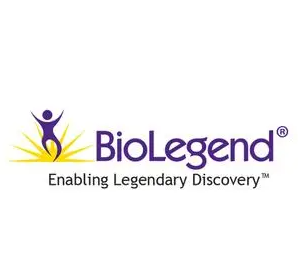Product Details
- Verified Reactivity
- Mouse
- Antibody Type
- Monoclonal
- Host Species
- Rat
- Immunogen
- Mouse CCR3-transfectants
- Formulation
- Phosphate-buffered solution, pH 7.2, containing 0.09% sodium azide.
- Preparation
- The antibody was purified by affinity chromatography and conjugated with PE under optimal conditions.
- Concentration
- 0.2 mg/ml
- Storage & Handling
- The antibody solution should be stored undiluted between 2°C and 8°C, and protected from prolonged exposure to light. Do not freeze.
- Application
-
FC - Quality tested
- Recommended Usage
Each lot of this antibody is quality control tested by immunofluorescent staining with flow cytometric analysis. For flow cytometric staining, the suggested use of this reagent is ≤0.25 ?g per million cells in 100 ?l volume.? It is recommended that the reagent be titrated for optimal performance for each application.
- Excitation Laser
- Blue Laser (488 nm)
Green Laser (532 nm)/Yellow-Green Laser (561 nm)
- Product Citations
-
- RRID
- AB_2561533 (BioLegend Cat. No. 144505) AB_2561534 (BioLegend Cat. No. 144506)
Antigen Details
- Structure
- G-protein coupled, seven transmembrane domain receptor, 356 amino acids
- Distribution
-
Eosinophils, basophils, mast, mononuclear phagocytes, platelets, hematopoietic progenitor, keratinocytes
- Function
- Co-receptor for HIV-1 and HIV-2, allergy
- Ligand/Receptor
- Eotaxin, eotaxin-2, eotaxin-3, RANTES, MCP-3, and MCP-4
- Cell Type
- Basophils, Eosinophils, Hematopoietic stem and progenitors, Mast cells, Platelets
- Biology Area
- Cell Biology, Immunology, Innate Immunity, Signal Transduction
- Molecular Family
- CD Molecules, Cytokine/Chemokine Receptors, GPCR
- Antigen References
-
1. Zlotnik A, et al. 2006. Genome Biol. 7:243.
2. Kodali RB, et al. 2004. Arterioscler. Thromb. Vasc. Biol. 24:1211.
3. Das AM, et al. 2006. J. Pharmacol. Exp. Ther. 318:411.
4. Huaux F, et al. 2005. Am. J. Pathol. 167:1485.
5. Puxeddu I, et al. 2006. J. Allergy Clin. Immunol. 117:103. - Gene ID
- 12771 View all products for this Gene ID
- UniProt
- View information about CD193 on UniProt.org








